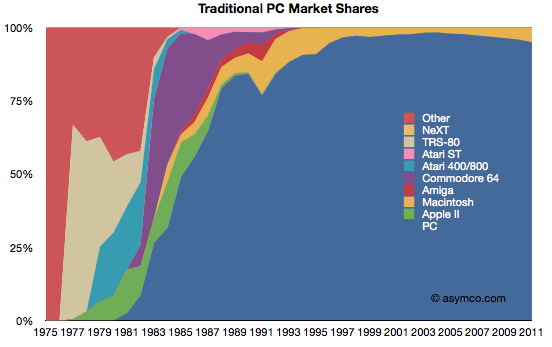- Joined
- Aug 20, 2006
- Messages
- 13,000
By 2020, Macs may no longer utilize processors by Intel: Apple is reportedly switching to chips designed in-house. It is part of the fruit company’s goal to unify all of its devices so they can work more similarly and seamlessly.
Currently, all iPhones, iPads, Apple Watches, and Apple TVs use main processors designed by Apple and based on technology from Arm Holdings Plc. Moving to its own chips inside Macs would let Apple release new models on its own timelines, instead of relying on Intel’s processor roadmap.
Currently, all iPhones, iPads, Apple Watches, and Apple TVs use main processors designed by Apple and based on technology from Arm Holdings Plc. Moving to its own chips inside Macs would let Apple release new models on its own timelines, instead of relying on Intel’s processor roadmap.
![[H]ard|Forum](/styles/hardforum/xenforo/logo_dark.png)

